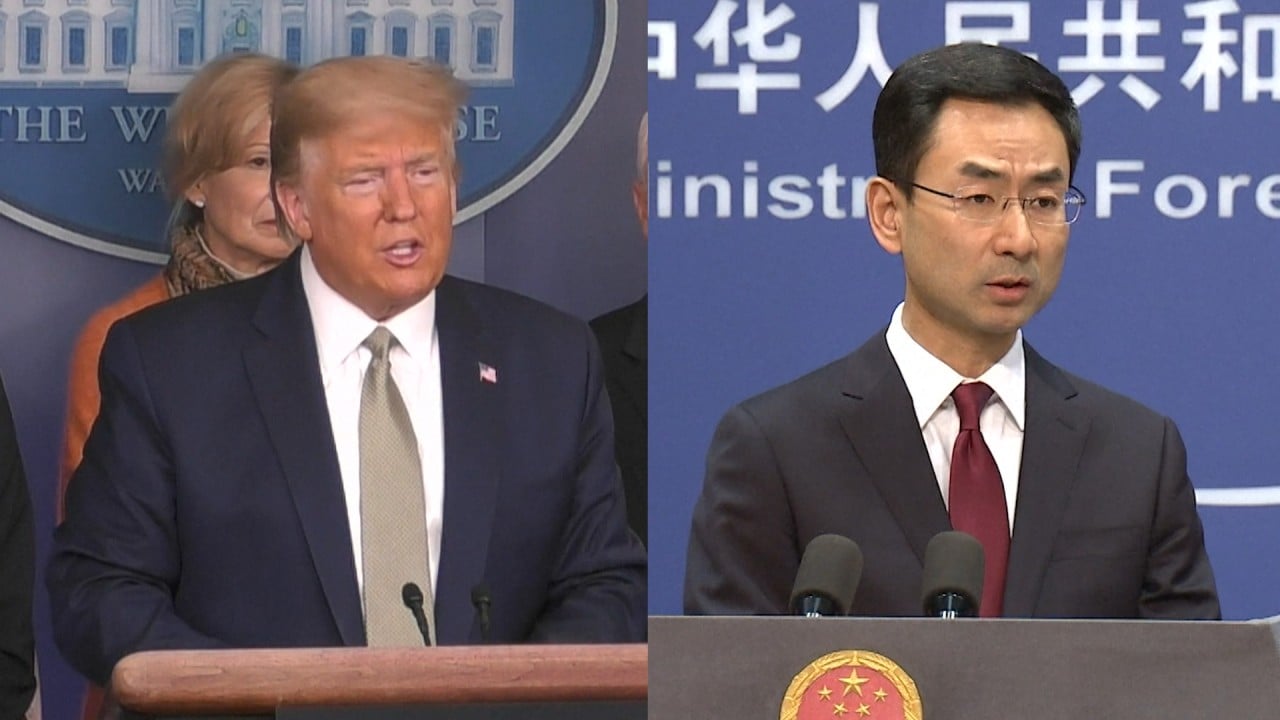
Anti-China rhetoric is not just US election bluster this time around
- Experience has taught Chinese leaders not to take statements made about China during US elections too seriously. However, this time, the window of opportunity to reset relations after the elections will be narrower and the differences wider
But why does such a tough stand against China now enjoy widespread American support? Opposing China is just about the only issue on which Democrats and Republicans agree.
Certainly, there is election-year politics involved: given the US’ disastrous record of controlling the coronavirus, attacking China seems both politically expedient and a convenient distraction.

03:01
Trump angers Beijing with ‘Chinese virus’ tweet
From then on, Chinese leaders recognised they should not take too seriously how China is bandied about in US elections, but simply seek to work with the winner in a business-as-usual manner. One hopes it will be the same this cycle, though one worries it will not.
How to combat these current beliefs is a challenge for China.
China’s leaders assert that, in an integrated global economy, China’s stability and development is essential for world peace and prosperity. One-party rule, they insist, is key to maintaining such stability and development, from which the world benefits – from 5G technology to containing epidemics to alleviating poverty.

01:36
Chinese engineers from Huawei, China Mobile build world’s highest 5G base station on Mount Everest
When playing the “China card” in the coming campaign, accusations against China will be made – alleged unfair economic practices, job loss, intellectual property theft, cybertheft, human rights violations, militarism, aggressive foreign policy, the pandemic. But none of these, I suggest, is the deep reason.
The deep reason is “nationalism”, which features in leadership cycles in all societies and all social systems. Nationalism is rooted in biological evolution – early human allegiance to the tribe increased fitness for survival and procreation. Humans have confirmed time and again that they will bear any hardship to protect the group, which today is usually the nation-state.
After the US election is over, a window of opportunity will open to reset relations. The window will be narrower than in past cycles and the differences will be wider.
The challenge for the US is to avoid threatening China’s core interests, such as party leadership or Taiwan. The challenge for China is to reduce the anxiety of those who fear China’s rise, especially with respect to limitations of information and freedoms imposed on others.
But there is no going back to halcyon days of amiable US-China relations. Nothing would be better for the American and Chinese peoples, indeed for the world, than genuine US-China cooperation. I’m watching for wisdom.
Robert Lawrence Kuhn, a public intellectual and international corporate strategist, won the China Reform Friendship Medal (2018)


